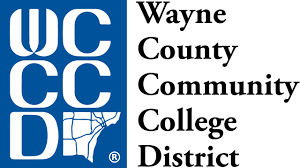Criminal Justice (BS)
What is Criminal Justice?
A degree in criminal justice critically examines the nature of crime and how the system responds to and attempts to manage crime. We prepare students intellectually and ethically to understand the complexities of crime, make communities safer, and ensure justice. Our program offers students opportunities for field experience internships, community-engaged research, and analytic writing, preparing them for professional roles or advanced study in graduate or law school.
What can I do with a Criminal Justice Degree?
Career options in criminal justice are virtually limitless, and many CJ majors earn careers in law enforcement, the courts, corrections, or a variety of non-profit organizations that serve the criminal justice system. Additionally, many continue on to graduate school earning a master's, doctoral, or Juris Doctor.
Wayne County Community College District Associate Degree Options
- Associate in Arts (AA)
- Associate in Science (AS)
- Associate of General Studies (AGS)
- Criminal Justice: Corrections (AAS)
- Criminal Justice: Law Enforcement (AAS)
- Other degree programs are possible but may exceed 120 total credits:
Recommended degree program: Criminal Justice: Corrections (AAS), or Criminal Justice: Law Enforcement (AAS) 
Earn the Michigan Transfer Agreement (MTA) - Satisfies Wayne State University's General Education Requirements
| Goal/Area of study | Wayne County Community College District Course | Credits | WSU Equivalent |
|---|---|---|---|
| English Composition | ENG 119 English Composition I | 3 | ENG 1020 |
| ENG 120 English Composition II | 3 | ENG 3010 | |
| Mathematics | See MTA; approved Mathematics | 4 | See advisor |
| Social Science | See MTA; approved Social Science | 3 | See advisor |
| See MTA; approved Social Science | 3 | See advisor | |
| Fine Arts/Humanities | *Pick one (1): ARA 101, FRE 101, GER 101, or SPN 101 | 4 | 1 of 2 foreign language |
| See MTA; approved Humanities/Fine Arts (non-language course) | 3 | See advisor | |
| Natural Science | See MTA; approved Natural Science | 4 | See advisor |
| See MTA; approved Natural Science with lab | 4 | See advisor | |
| Criminal Justice Pathway Courses | *Pick one (1): ARA 102, FRE 102, GER 102, or SPN 102 | 4 | 2 of 2 foreign language |
| CJS 100 Intro to Criminal Justice | 3 | CRJ 1010 | |
| Any LEA course (see advisor) | 12 | CRJ 1XXX or 2XXX | |
| Total Credits | 50 |
*All students in the College of Liberal Arts and Sciences must successfully demonstrate language proficiency equivalent to the two-course sequence in a single foreign language. Proficiency is demonstrated by completing courses numbered 1010 and 1020 in one of the following subject area codes: ARB, ARM, CHI, FRE, GER, GKA, GKM, HEB, ITA, JPN, LAT, POL, RUS, SPA, SWA, and UKR.
| Transfer Credit Summary | Credits |
|---|---|
| Pathway and Michigan Transfer Agreement (MTA) | 50 |
| Associate degree requirements and additional electives * -See advisor for course recommendations based on associate degree requirements, educational interests, and career goals. | 10-25 |
| Total Transfer Credits | 60-75 |
Notes:
- The range of credit hours (Associate degree requirements and additional electives) allows for earning credentials, such as certificates, or additional transfer credit while completing an associate degree. Some course(s) not included in the pathway may satisfy Wayne State requirements.
- The Michigan Transfer Agreement (MTA), Associate in Arts (AA), or Associate in Science (AS) satisfies Wayne State’s university general education requirements.
- All courses and equivalencies based on catalog year 2024-2025

The following courses are required to finish the degree requirements. Any pathway course(s) not completed at the community college can be completed at Wayne State University.
| College of Liberal Arts and Sciences, Bachelor of Science (BS) in Criminal Justice | Credit Hours |
|---|---|
| CRJ 2250 Race, Crime and Justice | 3 |
| CRJ 3550 Research Methods in Criminal Justice | 3 |
| CRJ 3800 Criminological Theory | 3 |
| CRJ electives (3000-level or above; see advisor) | 12 |
| Forensic and Investigation Minor (Other minors are available but may require additional credits. See advisor. Note CRJ 1010 satisfied.) | 15 |
| Total Credits | 36 |
| Wayne State credit summary | Credit |
|---|---|
| Major and minor | 36 |
| Wayne State electives and/or additional degree enhancements: See WSU advisor | 9-24 |
| TOTAL WAYNE STATE CREDITS | 45-60 min. |
| TOTAL WAYNE STATE and TRANSFER CREDITS | 120 min. |
Primary contacts
 Wayne County Community College District
Wayne County Community College District
District Division of Student Services
Ms. Nanette Williams-Armstrong
313-496-2634 | nwillia2@wcccd.edu
 Transfer Student Success Center
Transfer Student Success Center
313-577-2487 | transfer@wayne.edu
Criminology and Criminal Justice Department
313-577-2705 | Undergraduate advising | crj@wayne.edu
Notes:
- You can review how all courses transfer using the course equivalency tool. For a self-service, customized WSU degree audit, please visit https://wayne.edu/transfer/tess
- Wayne State requires a minimum of 30 credits in residency.
- The pathway allows multiple associate degree options with the flexibility to customize your degree path. The minimum eligibility to participate in the Wayne State Transfer Pathways is a cumulative GPA of 2.5 or above, Michigan Transfer Agreement (MTA), and an associate degree (earned or Reverse Transfer). See transfer credit guidelines.
- All college-level (non-developmental), non-duplicated courses with a 2.0 (C) grade point average (GPA) or above will be considered for transfer credit. Earned credit will transfer as 1) direct course equivalency, 2) major/department credit, or 3) elective credit. Credits not earned at the community college will need to be taken at WSU.
- The pathway was signed March 9, 2023.
- These pathways do not replace the importance of academic advising. The pathway provides a general roadmap to degree completion.